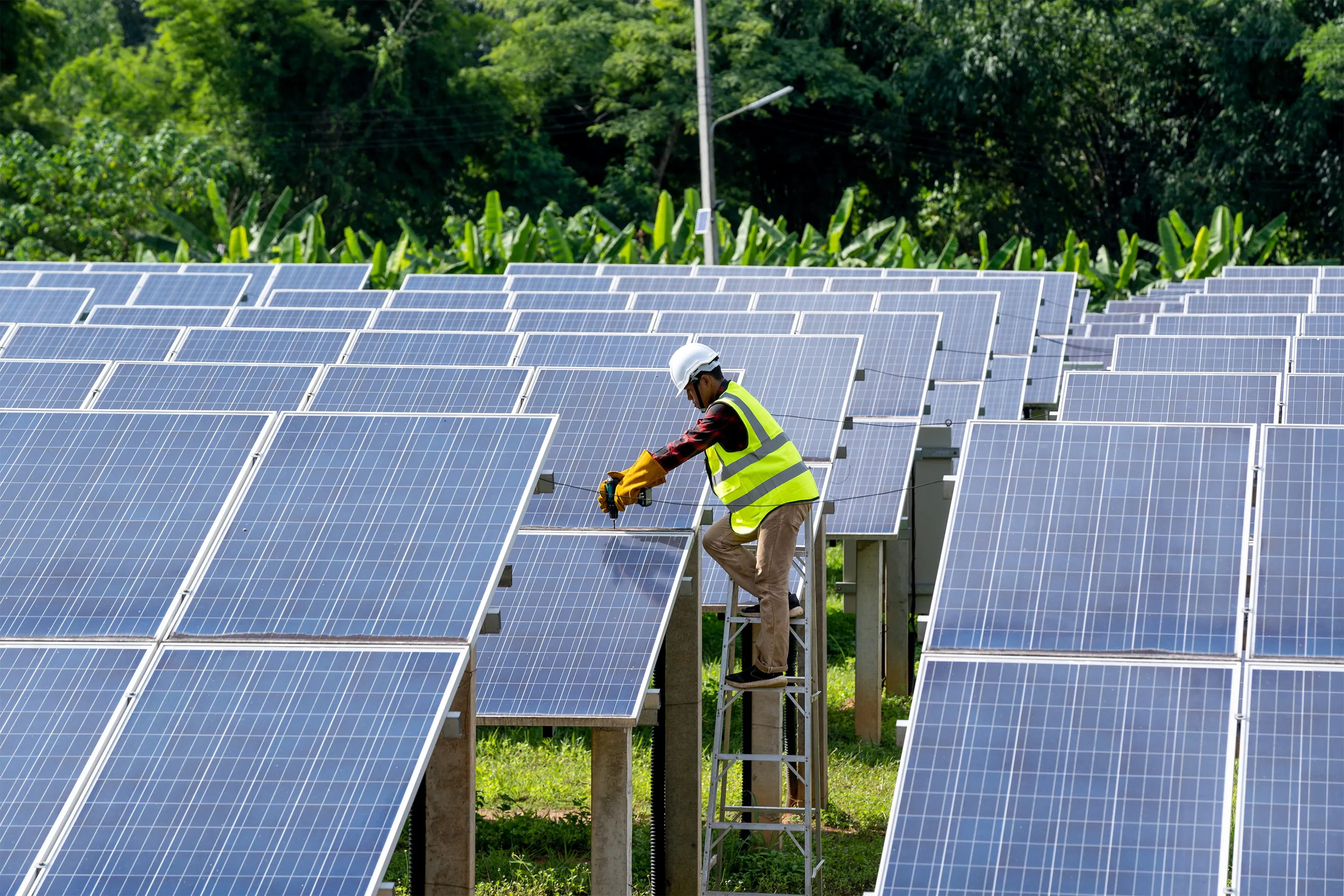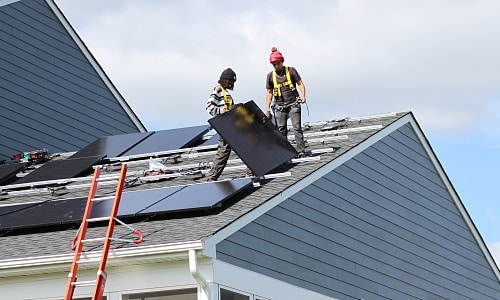The 3-Minute Rule for Solar Panel Company
The 3-Minute Rule for Solar Panel Company
Blog Article
Solar Panel Installation Virginia: Lumina Solar Specializes In Supplying Advanced Photovoltaic Solutions For Houses And Services
History and Establishing
Have you ever wondered how a solar panel company springs from a simple trigger of motivation into a powerhouse of renewable energy? It often begins with a vision-- one fueled by a blend of development, decision, and a pinch of serendipity. The journey of lots of solar business mirrors the development of the innovation itself: from bulky, inefficient panels to streamlined, high-efficiency marvels harnessing the sun's bounty.
The Early Days
In the late 20th century, when solar power was still a specific niche concept, leaders planted seeds for what would become a global movement. Picture a small workshop filled with curious engineers, tirelessly explore solar batteries. Their enthusiasm was palpable, frequently driven by a desire to fight climate modification and reduce dependence on fossil fuels.
One such anecdote is about a creator who, motivated by an outdoor camping journey, realized that even in remote locations, the sun might power essential devices. This basic observation stimulated a company's objective to equalize access to tidy energy.
Establishing Principles

- Innovation: Constantly pressing the borders of solar innovation to improve effectiveness and sturdiness.
- Sustainability: Devoting to environmentally friendly production and reducing carbon footprints.
- Ease of access: Making renewable resource options budget friendly and practical for everyday users.
Turning points in Development
| Year | Secret Event |
|---|---|
| 1985 | Business founded in a small garage, concentrating on research and development. |
| 1995 | Commercial solar panel item launched, acquiring regional attention. |
| 2005 | Expanded to worldwide markets, welcoming international sustainable energy objectives. |
| 2015 | Presented innovative photovoltaic panel innovation with improved energy conversion. |
Isn't it remarkable how these incremental steps, frequently ignored, form the energy landscape today? The solar panel business story is not simply about innovation; it's about a relentless quest for a brighter, cleaner future.

Innovations in Photovoltaic Panel Technologies
Ever observed how some solar panels shine brighter and last longer? It's not magic; it's the science of photovoltaic effectiveness. Modern photovoltaic panel companies invest greatly in innovations like bifacial cells, which capture sunlight from both sides, enhancing energy harvest without broadening roofing system area. Have you ever wondered why some panels perform much better on cloudy days? That's due to advances in thin-film solar innovation, which prospers under diffused light conditions.
Product Variations Customized to Distinct Needs
One size never ever fits all. Solar panel service providers now provide:
- Monocrystalline panels for maximum effectiveness and sleek aesthetic appeals, suitable for space-constrained rooftops.
- Polycrystalline panels, which use an affordable option without compromising excessive output.
- Building-integrated photovoltaics (BIPV), merging solar tech perfectly into architectural components like windows and facades.
Selecting the ideal item isn't almost in advance cost; it has to do with matching your environment, energy goals, and long-lasting cost savings. Homes shaded by trees require panels that stand out in low-light scenarios, something many overlook until energy costs climb all of a sudden.
Technical Tips for Optimal Selection
- Evaluate the temperature coefficient-- lower values suggest panels lose less efficiency on hot days.
- Look for panels with boosted anti-reflective coatings to maximize light absorption.
- Consider the panel's service warranty not just for defects, however for ensured power output over decades.
- Do not undervalue the value of the inverter innovation coupled with the panels; it can make or break your system's performance.
Beyond Panels: Emerging Patterns
Picture solar panels that change their angle automatically to go after the sun-- tracking systems are ending up being more available, increasing yield significantly. Or solar tiles that mix invisibly into your roofline, changing your home into a silent, self-sufficient power generator. These developments are reshaping what a solar panel business offers-- not just items, however incorporated energy options.
Market Existence and Global Operations
Ever question why some photovoltaic panel business appear to sprout up in every corner of the globe while others hardly make a ripple? The distinction lies not just in technology however in mastering the art of browsing diverse markets. Broadening internationally resembles planting seeds in different climates-- you should comprehend each environment's unique conditions to flourish.
Take, for instance, the intricate dance of logistics and supply chain management. Delivering panels midway throughout the world isn't practically range; it has to do with timing, customizeds, tariffs, and adjusting to local demand changes. A business with robust global operations expects these variables, guaranteeing panels get here on schedule without inflating costs. This insight is no little task and often separates market leaders from fans.
Secret Methods for Expanding Market Presence
- Localized manufacturing: Establishing production centers near target markets lowers shipping hold-ups and import intricacies.
- Strategic partnerships: Working together with local companies accelerates market penetration and constructs trust.
- Adaptive product style: Customizing solar panel tech to weather, sun intensity, and infrastructure subtleties improves performance and acceptance.
What about the human aspect? Solar panel companies running internationally should reconcile cultural distinctions and regulative nuances without forgeting their core mission. What works in a sun-drenched desert might falter in a humid coastal area. In some cases, the most ingenious option is just listening-- taking in local insights to fine-tune technology and method.
Experts frequently recommend a phased rollout rather than a shotgun growth. Why risk overextension when measured development constructs sustainable momentum? Scaling wisely means balancing ambition with operational resilience - Solar Companies in Virginia. After all, in the race for sustainable energy dominance, persistence can be as valuable as speed
Environmental Impact and Sustainability Practices
When photovoltaic panels first emerged, here many assumed they brought no ecological luggage. The truth is more nuanced. The production of photovoltaic cells includes rare earth metals and energy-intensive procedures, which can leave a large carbon footprint before the panels even reach roofs. The true environmental cost depends heavily on the sustainability practices used by the photovoltaic panel company throughout the lifecycle of their items.
How often do we stop briefly to consider what takes place to photovoltaic panels at the end of their beneficial life? Unlike batteries or electronics, photovoltaic panels can last 25-30 years, however disposal and recycling paths stay underdeveloped in lots of areas. A business committed to lowering ecological damage will have a robust prepare for recycling photovoltaic materials, salvaging important silicon, glass, and metals to avoid land fill accumulation.
Secret Sustainability Strategies
- Utilizing low-impact manufacturing techniques that minimize water and energy intake.
- Carrying out closed-loop systems to recycle production waste back into brand-new panels.
- Engaging in transparent supply chain audits to make sure ethical sourcing of raw products.
- Creating panels for simpler disassembly to assist future recycling efforts.
It's worth noting that some solar companies have originated innovative methods, such as incorporating naturally degradable parts or utilizing less hazardous chemicals throughout fabrication. This not just lowers ecological pressure but likewise sets a precedent for the industry. The concern stays: can the solar market genuinely pivot towards a circular economy model without sacrificing performance or cost?
Expert Tips for Assessing Sustainability
- Ask about the company's commitment to carbon-neutral production and whether they offset emissions.
- Investigate if they partner with certified recycling facilities committed to solar panel waste.
- Look for openness reports detailing environmental impacts and sustainability goals.
- Consider the durability and warranty of panels as an indirect procedure of resource effectiveness.
In the end, deciding for solar energy should indicate more than just slashing electrical energy costs; it has to do with supporting a future where energy is gathered properly and waste is thoughtfully managed. Photovoltaic panel business that accept this approach not just brighten homes however also cast a brighter light on sustainable innovation.
Report this page